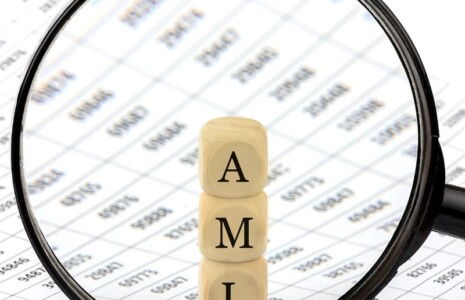What is the HMRC in the UK?
Every individual and business in the UK deals with HMRC whether they realise it or not.
In fact, if you live and work in the UK, you’ll contribute to and benefit from HMRC over the average month. If you’re in the accounting profession, you can expect to encounter them much more.
But what is HMRC? And what does HMRC do?
Don’t worry if you’re not actually sure. Let’s take a closer look at what HMRC is, who it’s made up of, and its purpose.
What does HMRC stand for?
HMRC stands for His Majesty’s Revenue and Customs. If you cast your mind back to before 2005, you may remember something called the Inland Revenue. HMRC is the result of merging the former Inland Revenue and HM Customs and Excise.
What does HMRC do?
HMRC looms large in the working life of most people in the UK from the moment they receive their first payslip.
This is because HMRC is responsible for collecting income tax and National Insurance contributions from employers, who take them from working people’s salaries on behalf of the government. HMRC do more than just collect income tax and NI, though. HMRC is responsible for collecting all types of tax from individuals and businesses and taxes on goods bought and sold in the UK.
HMRC collects over £600 billion in revenue every year. The money HMRC collects goes towards the public services we use in the UK, including the health service, the police, prisons, teachers and our military defence.
HMRC is also responsible for paying some types of state support, such as child benefits, working tax credits, and the state pension, helping people in the UK receive the benefits they’re entitled to.
HMRC consistently conduct investigations into individuals and businesses who may be trying to get away from their tax liability. However, the vast majority of people have nothing to worry about and will find HMRC helpful and efficient.
Who is HMRC?
So, who makes up HMRC?
You’ve probably heard HMRC referred to as ‘the taxman’. As previously mentioned, collecting tax is one area of HMRC’s operations, but HMRC does far more than that.
Reflecting their diverse duties, HMRC is a huge organisation comprising people from different fields, including lawyers, accountants, investigators, administrators, project managers and tax specialists.
Tax rules can be regional throughout England, Scotland, Wales and Northern Ireland, so they must be applied locally. HMRC has around 66,000 staff working in offices all around the UK – this means it’s one of the biggest employers in the country.
HMRC’s tax duties
Let’s take a look at some of the key taxes HMRC collects. Experienced accounting professionals should know these inside out – but if you’re just starting out or are considering a career in accounting, here’s a quick overview.
- VAT
Value Added Tax (VAT) is a percentage added to the cost of most goods and services in the UK, currently 20%. It’s up to businesses to add VAT onto the cost of an item or service, and then HMRC collects the VAT from the business every quarter.
- Income Tax
Working people in the UK pay a percentage of their income (above their Personal Allowance threshold) in tax. Most employers take This at source in the form of Pay As You Earn (PAYE), which the employer then pays to HMRC either monthly or quarterly.
Self-employed workers put their own tax aside and submit it to HMRC annually as part of their Self-Assessment tax return and payments on account.
- Stamp Duty Land Tax
In England and Northern Ireland, SDLT is due on residential property costing over £250,000 or £425,000 for first-time buyers at a rate of between 5% – 12% depending on the overall property value. (Scotland and Wales have slightly different rules). Usually, solicitors or conveyancers deal with SDLT on behalf of the homebuyer, and this includes sending the sum due to HMRC within 14 days of completion.
- Capital Gains Tax
CGT is the tax you owe HMRC when you make a profit from the sale of an asset, such as property or shares. Basic rate taxpayers pay CGT at 20%, while higher rate taxpayers pay 28% on capital gains. HMRC allows you to report on Capital Gains Tax digitally and pay online.
- Corporation Tax
Corporation tax is a tax which limited companies and unincorporated associations (like sports clubs) collect from their business profits and pay to HMRC. Companies (or their accountants) often record corporation tax owed and file a Company Tax Return. Corporation tax remains at 19% for all businesses.
- Inheritance Tax
HMRC collects a tax on property inherited in the UK worth over £325,000 (this includes the inherited estate’s combined value, so the property itself could be worth less, but other assets could push it over the nil-rate band).
Inheritance tax currently stands at 3.75% and can be paid to HMRC in instalments.
- Excise Duties
Excise duties are due on some goods sold in the UK, including alcohol, tobacco and hydrocarbon fuels. Excise duties exist to discourage the purchase of certain goods which are proven to be harmful to the health or environment. If importing and exporting these goods, excise duties are in addition to customs charges.
HMRC doesn’t directly collect excise duties. Rather, the products are more expensive to reduce their consumption. The manufacturer is then responsible for collecting and paying the excise duty to HMRC.
HMRC and accounting professionals
Most people can contact HMRC with the occasional query about their tax code, for example. Still, anyone who runs a sole trader operation or limited company is likely to require an accountant to deal with HMRC on their behalf.
Luckily, HMRC is set up to deal with accounting professionals, so as long as the client has authorised your access to their HMRC account, you should be able to do things like file VAT returns, submit annual accounts and ask questions through their online portal without your client having to get too involved.
Suppose you’re an accounting professional who isn’t affiliated with any professional body. In that case, HMRC sets out a standard for agents, including principles for professional competence and due care.
We hope you’ve now got a clearer picture of who HMRC is and what they do. Ultimately, an accounting professional will work closely with HMRC throughout their career, and for the most part, this relationship will be a productive, mutually beneficial and harmonious one.
As we’ve explored what HMRC is and its significance in the UK’s tax system, it’s clear that understanding and navigating HMRC’s complexities is crucial for accounting professionals. But you don’t have to do it alone. By joining the ICPA, you can benefit from comprehensive support and resources, such as Tolley’s Tax Library Access, Professional Indemnity Insurance, Money Laundering Compliance Software, expert advice lines, and significant discounts on various tools and services. Enhance your practice and stay ahead in the competitive accounting field with an ICPA membership. Discover more and elevate your professional journey at ICPA Membership Benefits.
Get the latest news direct to your inbox
Sign up to our mailing list to receive weekly bulletins on all of the latest accounting news.
"*" indicates required fields



